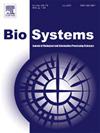Human cognitive limitations and emotions: The emergence of social complexity
IF 2
4区 生物学
Q2 BIOLOGY
引用次数: 0
Abstract
An evolutionary approach to human cognition and social complexity, acknowledging the essential role of social emotions, is attempted. From the start, every kind of cognition, either artificial or natural, is limited. In living beings, it is the life cycle, life course, or life history what determines the extension, intensity, and limitations of the cognitive tools evolved to adapt to the own niche: from bacteria to multicellulars, animals, mammals, anthropoids, etc. Herein we will briefly survey some of those instances. In the human case, the essential niche becomes an extended social group with a rich diversity of cognitive links or ‘bonds’ in continuous interaction. Evolutionarily, the adaptation process to this social niche has involved a series of brain size increases, allowing, above all, the cognitive wonders inherent in language. But it has also involved a restructuring of the cognitive ‘shortcuts’ — essentially, emotions — that help individuals to navigate their own life in the natural environment and, especially, within the highly complex social milieu. Ultimately, this social adaptation process made possible the emergence of human ‘ultrasociality’ –the crux of Anthropogenesis-- and the most conspicuous behavioral traits still observable in contemporary societies, the effects of which also reverberate in the practice of science itself.
人类认知局限与情感:社会复杂性的出现
一个进化的方法,以人类认知和社会复杂性,承认社会情绪的重要作用,是尝试。从一开始,每一种认知,无论是人工的还是自然的,都是有限的。在生物中,是生命周期、生命历程或生命史决定了认知工具进化的范围、强度和局限性,以适应自己的生态位:从细菌到多细胞、动物、哺乳动物、类人猿等。在这里,我们将简要地调查其中的一些实例。在人类的例子中,基本的生态位成为一个扩展的社会群体,在持续的互动中具有丰富多样的认知联系或“纽带”。从进化的角度来看,适应这种社会环境的过程包括一系列大脑体积的增加,首先是语言固有的认知奇迹。但它也涉及到认知“捷径”的重组——本质上是情感——帮助个人在自然环境中,特别是在高度复杂的社会环境中驾驭自己的生活。最终,这种社会适应过程使人类的“超社会性”——人类起源的关键——以及在当代社会中仍然可以观察到的最明显的行为特征的出现成为可能,其影响也在科学实践中产生了反响。
本文章由计算机程序翻译,如有差异,请以英文原文为准。
求助全文
约1分钟内获得全文
求助全文
来源期刊

Biosystems
生物-生物学
CiteScore
3.70
自引率
18.80%
发文量
129
审稿时长
34 days
期刊介绍:
BioSystems encourages experimental, computational, and theoretical articles that link biology, evolutionary thinking, and the information processing sciences. The link areas form a circle that encompasses the fundamental nature of biological information processing, computational modeling of complex biological systems, evolutionary models of computation, the application of biological principles to the design of novel computing systems, and the use of biomolecular materials to synthesize artificial systems that capture essential principles of natural biological information processing.
 求助内容:
求助内容: 应助结果提醒方式:
应助结果提醒方式:


